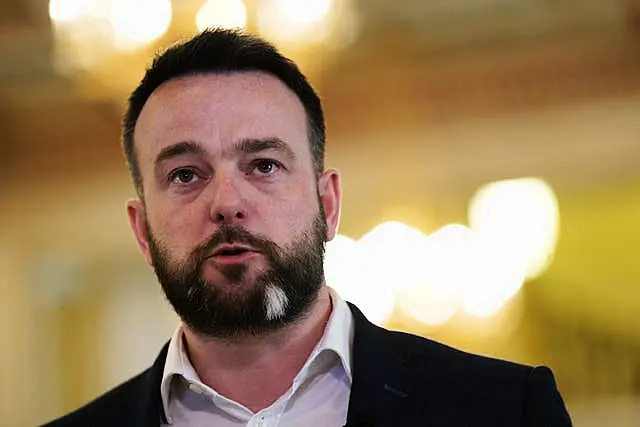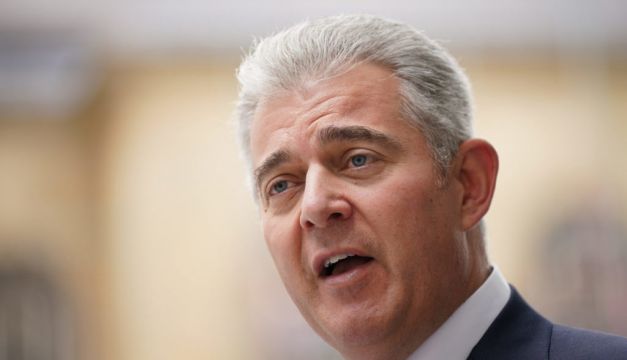Controversial Troubles legacy and reconciliation legislation was branded a “whitewash” as it cleared the UK House of Commons despite strong opposition from Northern Ireland MPs and victims’ groups.
MPs in Westminster voted 282 votes to 217, majority 65, to give the Northern Ireland Troubles (Legacy and Reconciliation) Bill a third reading.
It is expected the House of Lords will start considering the proposals before the UK parliament's summer recess and it is likely to receive a thorough grilling by peers.
The Bill seeks to establish a new information retrieval body to review deaths and other harmful conduct within the Troubles – defined as the period from January 1st, 1966 to April 10th, 1998.
It proposes an effective amnesty for Troubles crimes for those who co-operate with a new information body.
The Bill also seeks to bring to an end inquests which have not reached an advanced stage and prevent future inquests into Troubles-related deaths.
SDLP leader Colum Eastwood told the Commons: “What we are doing today is utterly shameful. It is a whitewash on a grand scale. It is an opportunity for impunity and it would not be allowed to stand in any other part of the United Kingdom.
“This says an awful lot that we are quietly and coldly walking through lobbies to bring this about today.”
DUP leader Jeffrey Donaldson said the legislation falls down “when it comes to justice”, adding: “We want to see an outcome on legacy, we recognise the government’s desire to move this process forward but we disagree with the method and the process that is being proposed.”

Alliance MP Stephen Farry said the Bill “does not have the support of the entire community in our region”, adding: “I do fear this will be a very expensive white elephant that won’t be used by both victims or perpetrators, but it will make the process of reconciliation in Northern Ireland that much harder.”
Northern Ireland Secretary Brandon Lewis earlier said the British government will “remain open to constructive dialogue with all stakeholders” on legacy issues.
He added: “We are also resolute in our commitment to delivering legislation that does all it can to deliver for those impacted by the Troubles.
“The reality is the Troubles are a painful period of our history and are still painful for so many in Northern Ireland. This Bill delivers a way forward and delivers on our manifesto pledge.”
But shadow Northern Ireland secretary Peter Kyle said: “With the passage of this Bill through second reading, through hours of committee, the Bill as it stands today still has no support of any Northern Ireland parties, it still has no support of any victims’ group in Northern Ireland.”
He added that amnesty was “too easy to earn”, telling MPs: “This Bill gives more rights to people who committed crimes during the Troubles than it does to their victims and for those reasons we will be opposing at third reading.”
At committee stage, MPs voted 282 to 209, majority 73, to defeat Labour’s amendment designed to prevent a person who is granted immunity under the legislation from “profiting from the conduct which they received immunity for”.
Mr Kyle had warned the Bill would allow perpetrators to “live in freedom” and “empower” them to release books which seek to “justify the mayhem and senseless killings” they carried out.
MPs also voted 283 to 220, majority 63, to reject DUP new clause 4, which aimed to make having received immunity under the Bill an aggravating factor in sentencing for the offence of glorifying terrorism.

During committee stage, Conservative former minister Johnny Mercer said he understood the UK government is involved in talks to ensure those who receive immunity under the Bill cannot “glorify” terrorism.
He said: “We need to be very, very careful that these cowards who – like I’ve said before – got up in the morning to murder women and children for their political aims, that they are given absolutely no opportunity to glorify what they did, and just really double down and make sure there is no gap in the legislation to make sure these people can’t take advantage of their crimes.”
Northern Ireland minister Conor Burns said: “It is our view that the Terrorism Act 2006 already makes it illegal for the encouragement or glorification of terrorism, whether this is in the past, the future or generally.
“Nothing in this Bill would prevent the prosecution of individuals who were deemed to have committed an offence under the Terrorism Act 2006.”
A DUP amendment designed to revoke immunity for people later found to have lied was rejected by 282 votes to 218, majority 64.







